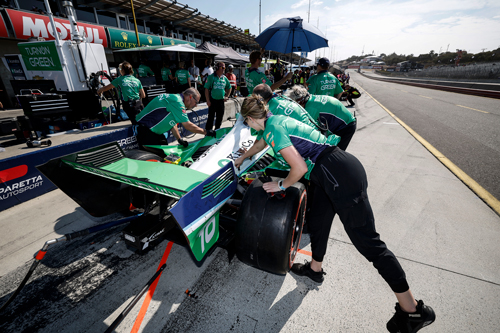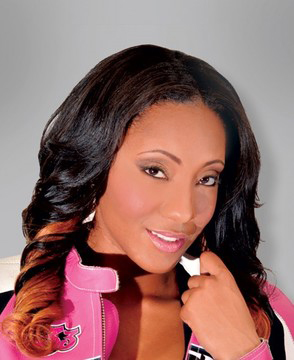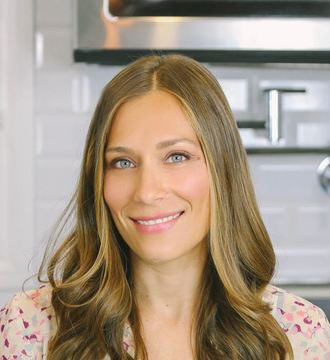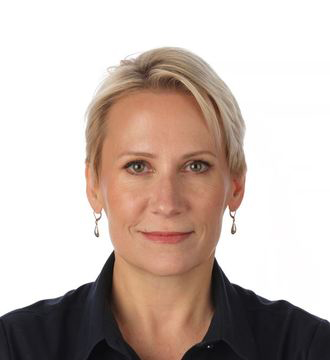By Douglas McColloch
Photography Courtesy LAT Images
It's no great secret that the auto-racing industry has been a male-dominated profession from the beginning. While some individual female pioneers have managed to achieve success on the track over the years, the infrastructural support needed to promote greater numbers of women in racing has been all too often lacking.

But as the new century progresses, things are changing in a profound and meaningful way, and more women than ever are making lasting impressions on the track, in the pits, in the shop and in the executive suite. A 2022 SEMA Show Education seminar, "Engaging the Next Generation of Women in Motorsports," took an in-depth look into this subject, with a trio of women from diverse backgrounds describing how they became involved in the racing industry while offering insights for attracting women and people of color to the sport.
DYSTANY SPURLOCK: THE RACER

Named a BMW Motorrad Ambassador for 2022, champion motorcycle drag racer Dystany Spurlock traces her attraction to motorsports to a very young age, riding on the back of her father's motorbike at age six and imploring him to "hit it, dad!" Her first visit to a racetrack came at age 12, where the sound of speeding bikes on asphalt captivated her, and her mother gave her a Suzuki GSX-R 750 for her 16th birthday. After only two months of training, she set a 1/4-mi. record on a Brocks Performance BMW S1000RR with a time of 8.46 sec. at 163 mph. In 2019, she became the first woman (and the first African-American) to win a 4.60 index final. She currently competes in the Mancup Series at tracks along the East Coast, and she continues to work toward securing sponsorships and racing professionally for NHRA Pro Stock Motorcycle.
Spurlock credits her mother for instilling her with a proactive attitude at an early age: "Never be the kid who sits in the back of class and says, 'if only I'd volunteered' or 'if only I'd raised my hand.'" This "can-do" mindset led her as a teenager to try out for her high-school football team (she made the squad) as well as racing motorcycles. Eventually, she decided she wanted to drive 18-wheelers, which she still does to this day.
"I love helping people," Spurlock concludes. "I love it when young girls—and guys—come up to me and ask me, 'How can I get into racing?' I just tell them, 'Go to your local racetrack and take some time and find the test-and-tune days. A lot of people think you need a lot of money or a big setup trailer, but you really don't need any of that. If you can ride it to the track, just take your time."
MICHELLE DELLA PENNA: THE EDUCATOR

The daughter of a celebrated IndyCar racer and owner, Michelle Della Penna literally grew up at the track, often accompanying her father to races around the country. ("I spent a lot of time in Indianapolis," she admits.) Her own career path led her into the hospitality industry, where she continues to work as the CEO of a hotel management company, but after her father's unexpected death in 2019, she says, she was "kind of trying to figure out how to honor his legacy." While Della Penna had no particular interest in racing, her three sons were all enthusiastic go-karters, and a visit to a local track with one of them led her to an epiphany of sorts. Observing the karters at the track, she noticed only two girls out of some 30-odd karters. "And it just got me thinking, why aren't there more girls involved in karting? How do we get more girls in karting?"
"I had the luxury of growing up in motorsports, but it's not a sport that you're going to play at school or at the Y or in your cul de sac," Della Penna explains, so to provide girls and young women with the same opportunity she had, she started the Della Penna NextGen Foundation, a California-based nonprofit organization, which aims to empower girls and young women to pursue careers in motorsports, and to impart the STEM education that's necessary to succeed in the profession, "Girls tend to drop out of sports and STEM initiatives at the end of junior high and the beginning of high school," she notes, "so our programs are geared from ages 5 to 16."
Among the programs NextGen sponsors are: weekend invitationals, where girls and their families attend a VIP racing event with paddock access; track days, where girls experience a day of karting and learn basic STEM theories; and fellowships, where girls gain hands-on experience participating as a member of an all-female race team. The foundation also has a scholarship program in the works for 2024.
BETH PARETTA: THE TEAM OWNER

Beth Paretta's path to the racetrack was slightly more circuitous than the others. The daughter of a hobbyist, Paretta often helped her father and brother clean car parts, but she didn't develop a keen interest in cars until her brother's death. After earning a degree in broadcasting and an MBA, she "made a pivot" and took a job selling cars at a dealership. ("Lee Iacocca started selling cars," she reminds.) Eventually she was "plucked from obscurity" by Volkswagen, who hired her as a business development manager. This led to leadership positions at Aston-Martin and Fiat Chrysler, where she became the first woman to head a performance division (SRT) for an OE manufacturer. She launched Grace Autosport in 2015, a professional race team of women and an initiative to promote STEM education for girls, and in 2021, she started Paretta Autosport to lead diversity initiatives across professional racing circuits such as the IndyCar series and Indianapolis 500, in particular. Recently, she has partnered with racer Lyn St. James to form Women in Motorsports North America, a community of racing-industry professionals devoted to supporting and creating opportunities for women across all disciplines of motorsports.
Like Della Penna, Paretta aims to instill an interest in motorsports for girls while they're still young. "You can affect a kid's trajectory of what they want to be when they grow up between age 10 and 12. That's the sweet spot. If you're General Motors or Stellantis or Ford, you're going to college fairs and trying to recruit people, but by then it's too late.
"My aim is not to create a bunch of racing mechanics," she continues. "I want you to think it's interesting. Pay attention in school and go work for Boeing if you want." But she also mentions that "racing is something that's fun. It's like the spoonful of sugar."
Paretta describes another compelling reason for attracting more women into a male-dominated profession. "Everybody's lamenting the shortage of talent," Paretta says. "There's a shortage of engineers. They're retiring at a faster rate than they're being backfilled. At Chrysler, I had to fly people in from overseas because there wasn't enough homegrown talent.
Paretta says she has encountered a similar "skills deficit" among race mechanics: "There is such a shortage of talent that we're actually trying to pull people from Europe if we have to. There are more cars on the grid in IMSA now. SRO is expanding, and Indy Lights is expanding. We desperately, regardless of gender, need mechanics."
"We want racing to survive for many years," she adds. "We want to broaden the audience. So diversity is not just a nice, cute thing to do. We need people to buy tickets. We need them to watch in the stands.
"It can't just be old white dudes racing anymore," Paretta concludes, "because that's not what the world is."
